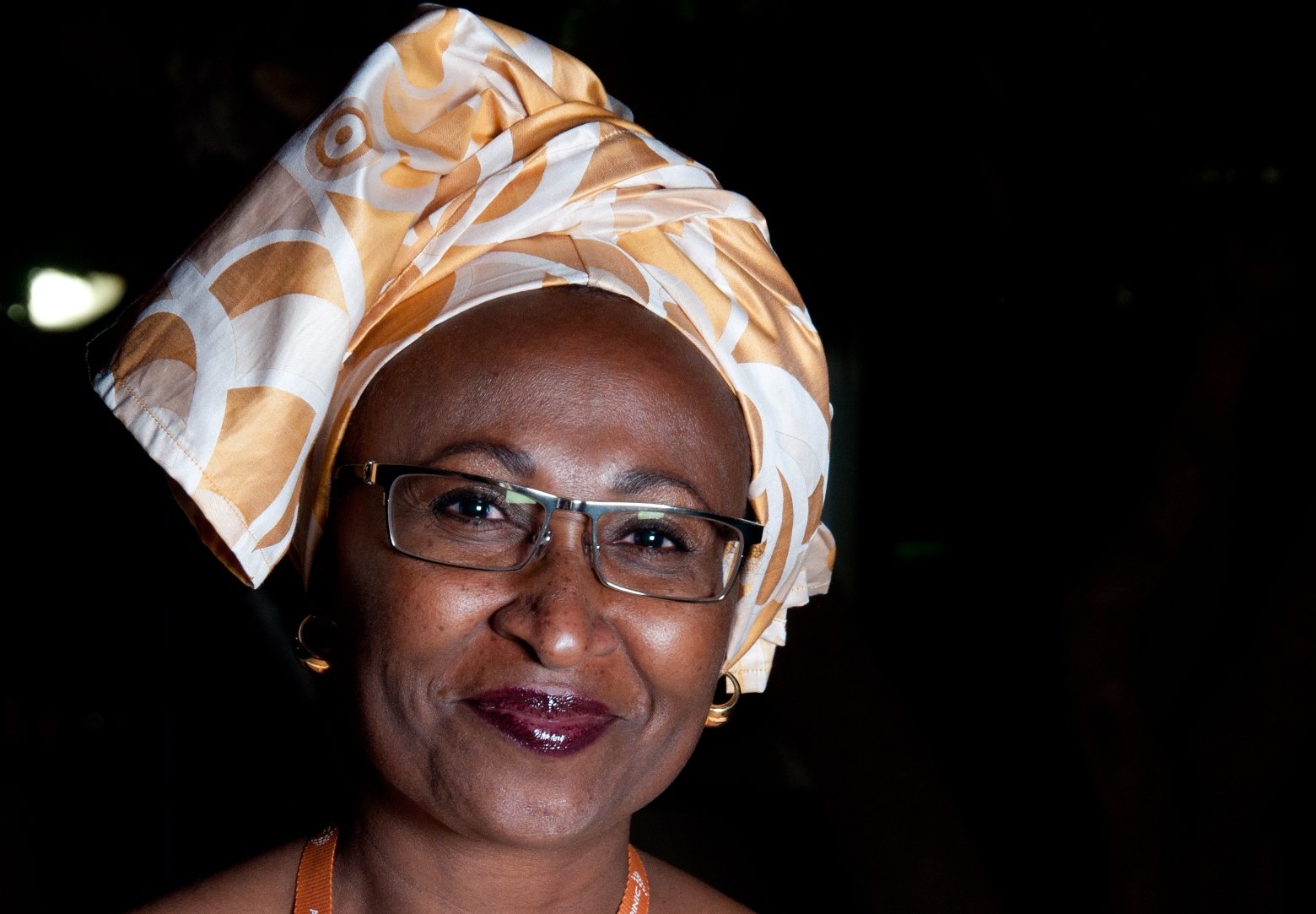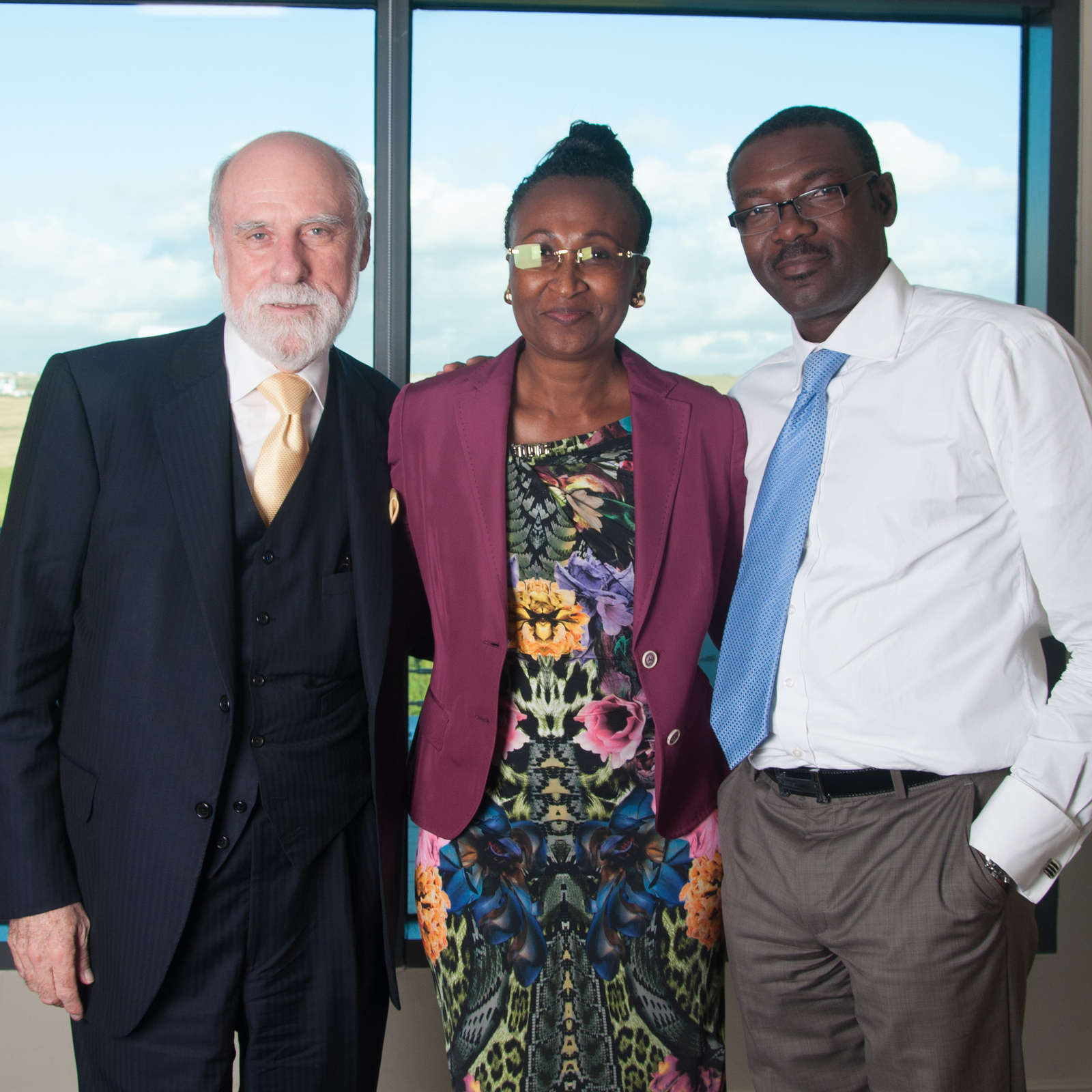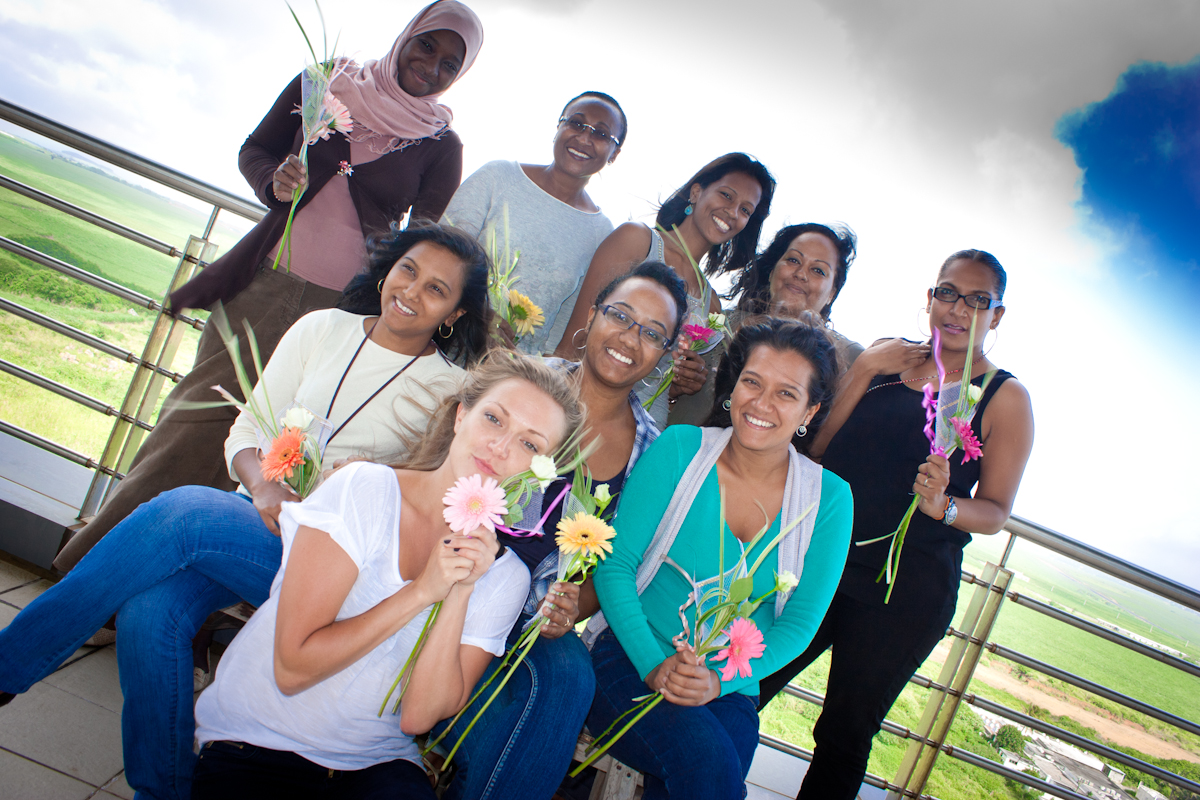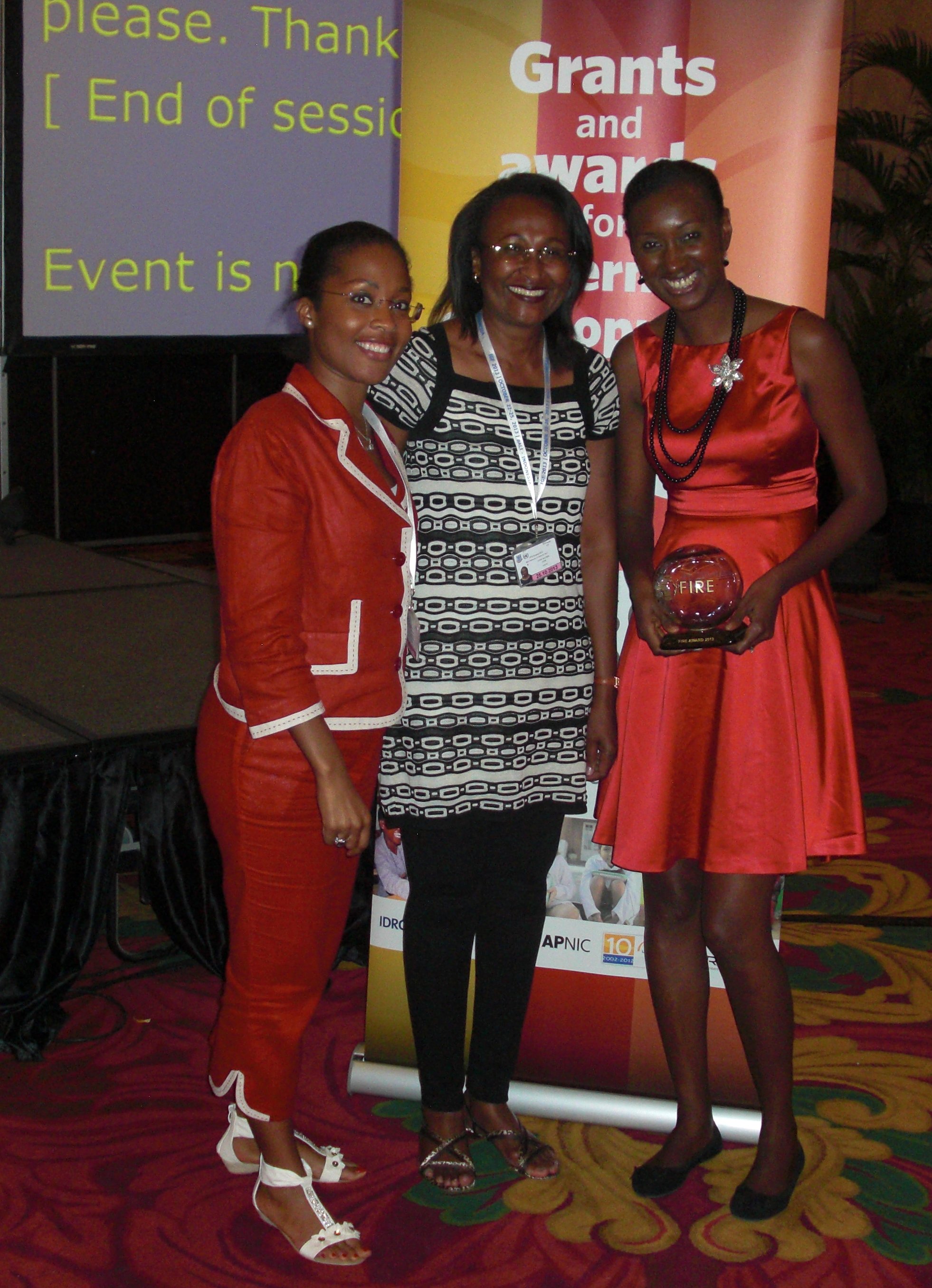Interview of the Month
Anne-Rachel brings over 16 years of experience as an entrepreneur and consultant in the strategic Internet for Development sector. Anne-Rachel worked as Policy Analyst/Liaison, and Manager Regional Relations at ICANN where she was the primary link to the International and African communities (Governments, Private Sector, Civil Society, Academia, Media, Individual users, RIR etc.). She also served as Vice President Europe for ICANN for sometime.

She is also a founding member of African Internet related organisations like AfNOG, AFRINIc and others. She holds a Master of Literature and an MBA in International Finance/Economics.
She produced and publicized Learning by Doing in 1998 while at IICD: Lessons emerging from the ICT Projects for the benefits of the projects themselves and the wider community in all sectors. She was a member of the Bureau of the African Group at WSIS as a representative of the African Private Sector Member (since Bamako 2000). Also member of the Gender Coalition during WSIS and helped write Creating Your Own National Gender Programme – A Practical Guide.
Anne-Rachel is featured as ICT Expert in the ILO/IOM book for the AUC: African Women at the Service of the Union. In 2010 while working at ICANN, she was awarded both the Network Information Infrastructure (NII) Service Award for 2010 in recognition of her contribution to improving and sustaining Africa's Internet environment and the AFRINIC Leadership Award for her demonstrated immense commitment and continued engagement with AfriNIC & AfNOG communities in the interest of Africa as a whole.
- You became Chief Operations Officer (COO) with AFRINIC in 2012, could do you tell us about your work with this organization and why do you think it is important to ensure a fair distribution and management of Internet number resources in Africa ?
As the COO of AFRINIC, I need lots of creativity, coordination and thinking ahead. I develop, implement, and manage the operational aspects of the annual budget. I tune up parts of the organisation that are under my responsibility: Engineering & IT, Member Services and Communications and Public Relations. Number resources are the ones that help our devices and our networks talk to each other. Until 2004, when someone needed IP addresses for example and depending on where you were located in Africa, you needed to ask the Regional Internet Registry (RIR) taking care of your subregion: RIPE (Europe), ARIN (Americas) or APNIC (Asia Pacific). At the time, Africa did not have an RIR and our network operators were working with policies agreed by other regions for other circumstances. Long story short, the African community came together, worked on AFRINIC and the RIR was recognised as the 5th RIR by ICANN in 2005. Since then AFRINIC distributes IP addresses and other resources under policies agreed upon by consensus by our community and ensure that there is enough resources for all. We need the fair distribution and management of these resources as they are finite resources. We assess needs when people ask for resources as we need the next billion that come online to be connected correctly.
- You have an impressive background in the internet world in Africa. How do you assess the chances for the Continent to overcome the digital divide?
They are very high if you ask me. With the advent of smart mobile phones at cheap prices, all it takes is a market for the devices to speak the official languages but also our languages. That I see as a way of helping literacy and then productivity at all levels. This December 2013, the education sector will meet in Tunis to assess how ICTs can become pervasive in the sector. You need only to look at the number of conference talking about how ICTs can help us to know that we all realise now that we shall overcome the digital divide if we overcome the literacy one.

Ann-Rachel with Dr Vinton Cerf and Adiel A. Akplogan AFRINIC Chief Executive Officer
- There are still a lot of inequalities between men and women. Girls especially are discriminated against in terms of education. Can you tell us about AFRINIC’s efforts to advance the status of girls and women in African societies?
I am glad MEWC is one of our 2013 awardees with the FIRE (www.fireafrica.org) programme. We give awards and grants with this programme and we look around and encourage women to apply for both. We work with AFNOG and NSRC on AfChix (women engineers) who get their own tracks. I go to schools and universities as much as possible as a guest speaker to show the girls and ladies that having a literary background does not prevent you from ending up in a ‘geek world’. AFRINIC as the youngest Regional Internet Registry has had a woman chairperson and has a woman COO. We are leading by example.
- Women’s access to ICT in Africa has grown during the last decade. However, there remains a need to address affordability and the perception and attitude towards the use of ICTs by women. Where do you think technology can go in terms of empowering women economically, socially, protecting them, ..?
Affordability of devices and of connectivity is definitely key in adoption of ICTs and Internet in general. In a lot of countries in our region women are the bread winners even if not recognised. They need among all the other family needs they have to cater to; to be able to afford the devices and the connectivity for educating themselves, for getting information that will help their health, wellbeing and economic status. It works, we have seen it and we have examples of many around the world who are faring much better due to access to technology.
- What is the best way to increase the access to ICTs across the African continent?
Increase the connectivity, make equipment more affordable are the two main factors I believe. As a result I believe our institutions have to help in adapting policies and in not making ICTs a luxury for Africans.
- Women represent half of the population in Africa, however, access to justice, decision-making position and economic empowerment remains a mirage for many women in Africa. What can be done to remedy the situation?
Education is key to all of that. From religion to economy, women need to be able to have a choice and not be dictated to because they cannot read and check for themselves what is good for them. Not being educated results in them having to solicit help that can be well meaning or not. Often not. With some of my associative work, I have been helping young girls go to school ever since my first job. I am a founding member of Centre Reines Daura in Niger, an NGO that is ambitioning to be the ultimate resources centre for women. We called it Reines Daura as we also believe in history that teaches us that women were not always the least empowered in our world. So education is key to empowering women, in making them believe in themselves and their own potential.
- Do you think digital storytelling/digital information sharing is a good way for African women to have their voices heard?
Guess what? We all love stories! So yes I believe in that and I believe in telling stories like the Daura Queens. I was told that story as a young girl by my grandmother and it has been a great support to know that women were leaders and can still be.

AFRINIC ladies on International Women's day 2013.
- How can we effectively use ICT to empower African rural women who have limited or no access to the internet but can easily acquire or access mobile phones?
So mobile phones do have radios. In the age of the Internet we seem to have forgotten that radio can be a great companion for learning, for sharing information, for disaster prevention alerts and for marketing information. We need more dedicated radios that can broadcast programmes that can help empower rural women.
- What are the barriers in getting more women in the fields of science and technology?
The one barrier is first to go to school. When they can get to school, girls do tend to be pushed into ‘feminine’ work and vocational schools like nursing, teaching for primary education etc. Showing them examples, teaching them at a young age that there is nothing you cannot do when you set your mind to it is key.
- As a woman working in a man's dominated fields, what advise would you give to young aspiring women be it in the diaspora or on the continent who would like to pursue a career in this fields?
Believe in yourself, listen, learn, be curious of everything and make sure the opinion that count first is your own, on yourself. Know your stuff and the rest will be history.

